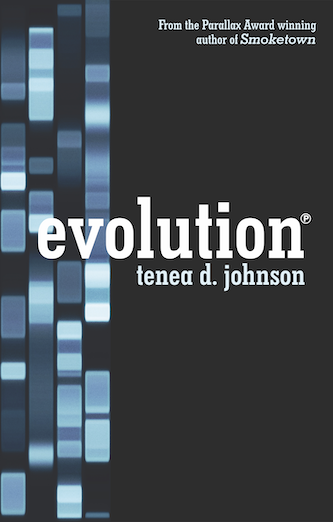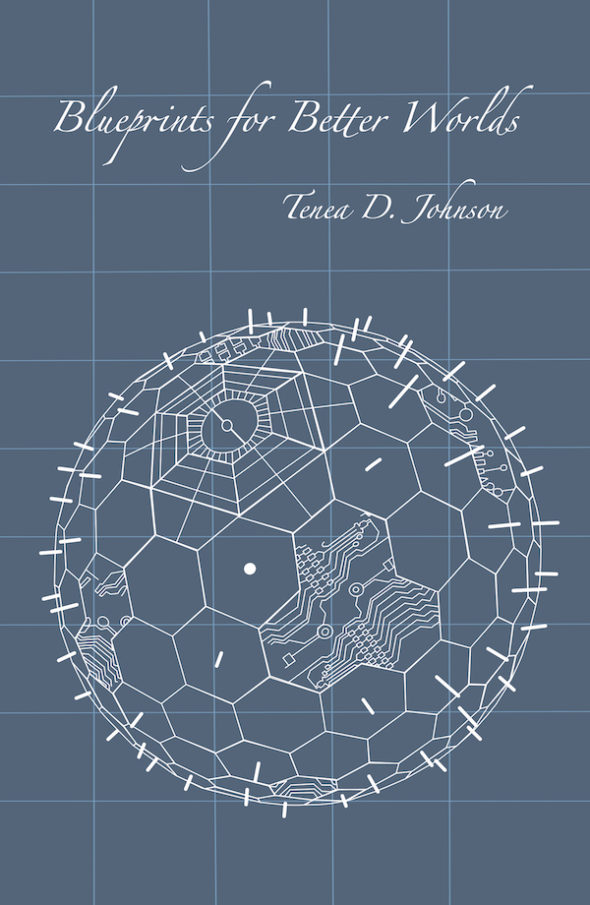Evolution Review
Evolution’s first review is in: Apart from a story arc that spans the best part of 200 hundred years, there’s one particular aspect that stands out most clearly about Evolution. Johnson writes hope into her work. She builds it in, gently, quietly, without fanfare. It isn’t obvious at first, just a soft nudge here and there—in the face of gassed populations, dengue fever and total injustice, you think you’re mistaken at first. Around every page turn, you’re expecting disaster, and there are enough of those to justify the lack of belief you have that hope could even be a thing in such a world. But keep reading.For that, Johnson is currently my total writing hero….
Evolution Ebook Is Available for Preorder
The ebook will be released June 21st, but it’s available for preorder now. 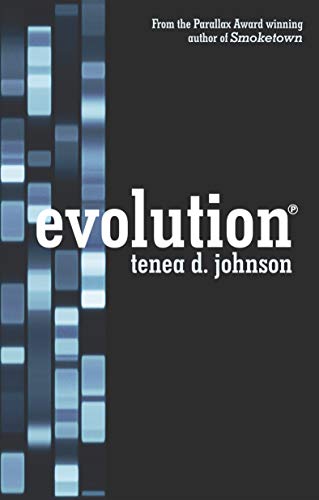
Revolution: The Lost Recordings
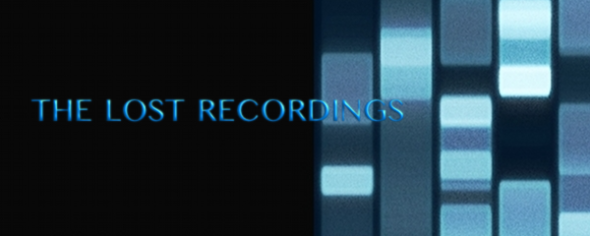
Revolution came first, then exclusively in the Afrofuturism storybundle,the Evolution ebook. On the horizon, Evolution in print and The Lost Recordings. Here, a bit of the latter.
Afrofuturism, Best of and Next Up
Here, a miniretrospective: On this last day of the storybundle, current Afrofuturist authors/editors share their favorite works and what they’d like to see in Afrofuturism’s future.
What’s your favorite Afrofuturist work?
Octavia’s body of work. It’s hard to pick. Wild Seed, Kindred, Parable of the Sower, Xenogenesis Trilogy, etc.
—Andrea Hairston
It’s a tie between Octavia Butler’s Mind of My Mind and her short story, “The Evening, the Morning, and the Night.” The first is a novel, the latter a short story. I’d call them some of her lesser known works but for me, they are so efficient and clean, with an emphasis on the joy of the plot, that they’re hidden gems. No offense to Parable of the Sower or the other more stand out works by Ms. Butler, but I like a tight stand-alone narrative with no wasted plot points, characters, or words. And she delivers with those two tales.
—Ayize Jama-Everett
This is an easy one, Dawn by Octavia Butler.
—Nicole Givens Kurtz
Empire Star, by Samuel R. Delany. It’s available from Wesleyan, and I was able to get permission to reprint it in the Lightspeed People of Colo(u)r Destroy SF anthology.
—Nisi Shawl
Well, Sun Ra, is way up there, mindblowing, and there’s so many more, but if pushed, I’d have to go with Samuel R. Delany’s Babel-17, which I bought well-worn from a street bookseller in Harare when I was 16.
—Ivor Hartmann
What direction would you like to see Afrofuturism go in? What would you like to see come of this Afrofuturism moment?
I want Afrofuturism to go every direction. I want the Afrofuturist moment to last a very long time!
—Andrea Hairston
Oh, we a movement now? Awesome. I want reparations then. I kid. Not really. Seriously though I’m not sure what people mean by a movement. I mean, are there Afrofuturist publishers, agents, cinema houses, and lawyers? Do we have a Samuel Delany Center for the Study of Afrofuturism and its offshoots going somewhere? If so, awesome. If not, I think it’s just a popular cultural phase right now. Don’t get me wrong, I’m glad a lot more folks are getting the shine on their names. Folks that have been grinding for years at this are finally able to eat off of it. I hope to one day be among them. But even so, I know that the diversification of both approach and narrative are key in order to stay fed. I think about Jordan Peele. The man started out on MADtv. And after over a decade he made a blockbuster on a shoestring budget, which can only nominally be called sci-fi. But folks are claiming him as Afrofuturist royalty. Awesome! The more the better. But is it about Afrofuturism or just finally acknowledging that black people who create in this country and throughout the world do so with more than white audiences in mind? Maybe publishers, agents, editors, producers, and directors are finally just coming to realize that the same weird, creepy, and geeky things that have obsessed the dominant culture have also intrigued black creatives and audiences. And sometimes, our approaches to said weirdness are more intriguing than the standard fair. You want to call that a movement? Cool. Me, I say it’s just awesome people of color continuing to do what we’ve always done, only now some of us are being recognized for it.
—Ayize Jama-Everett
I would like to see Afrofuturism continue to incorporate all areas of media. I would love to see more TV and film media embrace authentic Afrofuturism. Black Panther had the backing of Disney, but many independent filmmakers are producing quality works but cannot get the distribution. How do we harness that hunger to our advantage? How do we connect those people who adored Black Panther to our independent works? I want to see the movement embrace all Afro-centric stories, not just those rooted in Africa, but from the other countries in the diaspora, including the U.S. Most importantly, there is amazing work being created in comics, novels, films, and music, but have not reached the audience necessary to be as big as I think it can be.
—Nicole Givens Kurtz
3 Minutes with Andrea, Author of Will Do Magic for Small Change
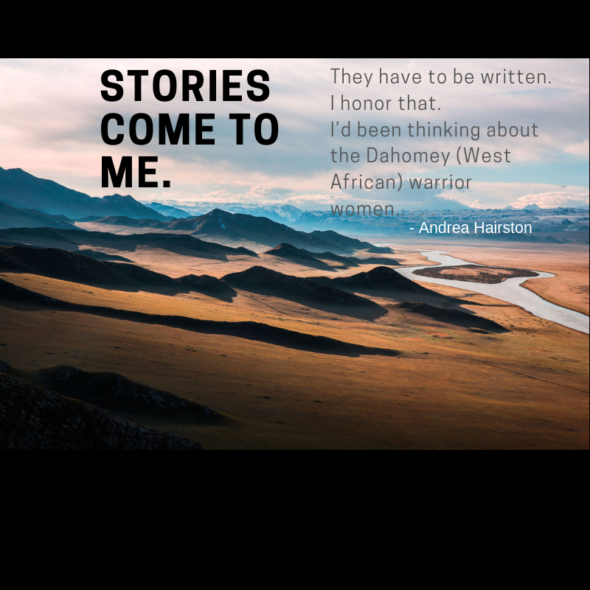 With just a little over a day left on the Afrofuturism storybundle Andrea Hairston shares her thoughts on working in different forms and the intersection of Will Do Magic
With just a little over a day left on the Afrofuturism storybundle Andrea Hairston shares her thoughts on working in different forms and the intersection of Will Do Magic
How does being a playwright inform your work?
I am a dramatic storyteller. Drama is about the poetry of action. Meaning is in the juxtaposition of actions, in the clash of character choices and consequences. Theatre is about embodying the other—acting who you are not, writing another world, experimenting with reality. Theatre takes me right to speculative world building and stories beyond mimetic realism.
Why this story?
Stories come to me. They have to be written. I honor that.
I’d been thinking about the Dahomey (West African) warrior women who supposedly appeared at the Chicago World’s Fair for a long time. There’s a moment in an earlier novel, Redwood and Wildfire, where they also appear. So why not have an alien from another dimension meet them and learn the world from their perspective? Why not connect Redwood and Wildfire’s granddaughter with the alien?
Describe this work in 3 words.
Alien Ancestor Theatre-magic
How do you measure writing success?
Success is telling the stories you want to tell, how you want to tell them.
Success is challenging yourself and showing up every day for that challenge.
Success is having the generosity of spirit and the humility to connect with and support other artists.
Success is never giving up on getting better, but taking pleasure in what you have achieved.
3 Minutes with Ayize, Author of The Liminal People
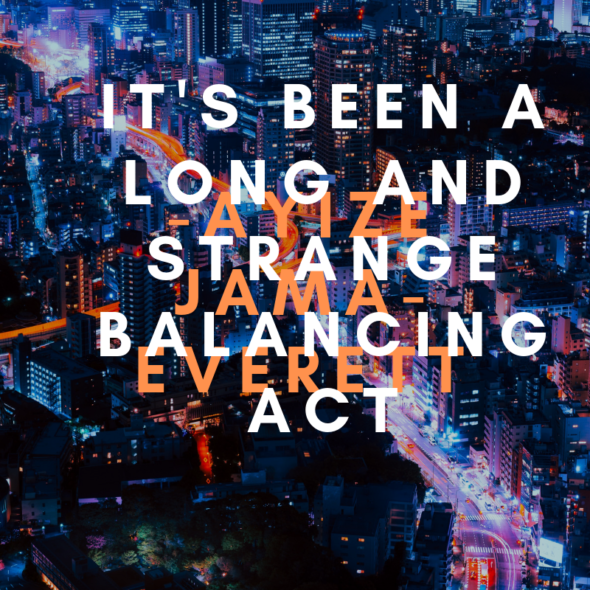
Ayize Jama-Everett’s The Liminal People is also featured in the Afrofuturism Storybundle. Here, a closer look at writing and the work:
How does liminality manifest in your life?
How does it not?! I’m forever between the now and the later, the done and the doing. It’s a character trait flaw that makes contentment an accomplishment for others and not myself. Despite being born black in Harlem to politically minded folks, I used to refer to myself as a Black Cultural Refugee, before black geeks became cool. I have three master’s degrees and no Ph.D. I’m in the middle of the world and my understanding of it. Yes, liminality is manifested in my life.
Describe this work in 3 words.
Traveled. Troubled. Family.
Why this story?
This story was a compromise between the expansive multi-dimensional tale I wanted to tell and the intimate close narrative that the epic needed to be based in. It’s been a long and strange balancing act.
What subject do you find most difficult to write about? The most effortless?
Can they be the same thing? I love writing about fights and food. My next novel should be about food fights. But the choreography of physical combat and the innate sensualness of anything that is offered to the mouth make the writing effortless and enjoyable. I tend to stay away from real life events though I have experimented. Nonfiction is probably something I should push myself to write more but I think I need to hang in some plain old narrative fiction for a while before I do that. The idea that a mundane life can be worthy of insight given the proper attention to the craft of writing is not revelatory but expansive for a kid who grew up reading sci-fi and comics.
Hey Writers, What’s on Your Desk?
From some of the Afrofuturism storybundle authors–
Andrea Hairston, author of Will Do Magic for Small Change
The Age of Surveillance Capitalism: The Fight for a Human Future at the New Frontier of Power by Shoshana Zuboff
Braiding Sweetgrass: Indigenous Wisdom, Scientific Knowledge and the Teachings of Plants by Robin Wall Kimmerer
The Bird King by G. Willow Wilson
New Suns anthology edited by Nisi Shawl
Mama’s Last Hug: Animal Emotions and What They Tell Us about Ourselves by Frans de Waal
Beyond Words: What Animals Think and Feel by Carl Safina
Sweat a play by Lynn Nottage
Flyin’ West a play by Pearl Cleage
Black Nature: Four Centuries of African American Nature Poetry edited by Camille Dungy
Ayize Jama-Everett, author of The Liminal People
What is this desk you speak of? :) I don’t do the “a clean well lit place” sort of thing. Mostly because my life has been in a unique form of free fall for the past two years (MFA land). Instead, I grab a laptop, hope the battery is good enough, find a caf,e buy the cheapest cup of tea I can find, and get to writing. usually, I’ve got headphones on. sometimes, I write in my car, parked by a park. In the past, I’ve written on index cards because that’s what one of my heroes did. So there is no desk, only the writing.
Nicole Givens Kurtz, author of Silenced
My laptop, my legal pad, and coffee if it’s morning, iced water if it is noon, and wine if it’s after 6 p.m.
Nisi Shawl, author of Filter House
Mounds of notebooks I make my way through dexterously. A defunct printer. A cigar box full of business cards. A small purple plastic chest full of beaded sea creatures, paperclips, kaleidoscopes, key rings, white out, and thumb drives. A tin snake from Mexico. A lapis lazuli egg. A Lego mermaid. A Lenovo ThinkPad. A box cutter. An empty baking powder can I use as an ashtray. An empty baked bean can I use as a pencil holder. A goosenecked lamp with additional pencil-holding compartments built into its base. My make-up kit. Three potted plants. (It’s a very big desk.)
Ivor Hartmann, editor of AfroSF
Too much as per usual and that’s how I like it, but I am currently reading Jennifer Nansubuga Makumbi’s Kintu.



